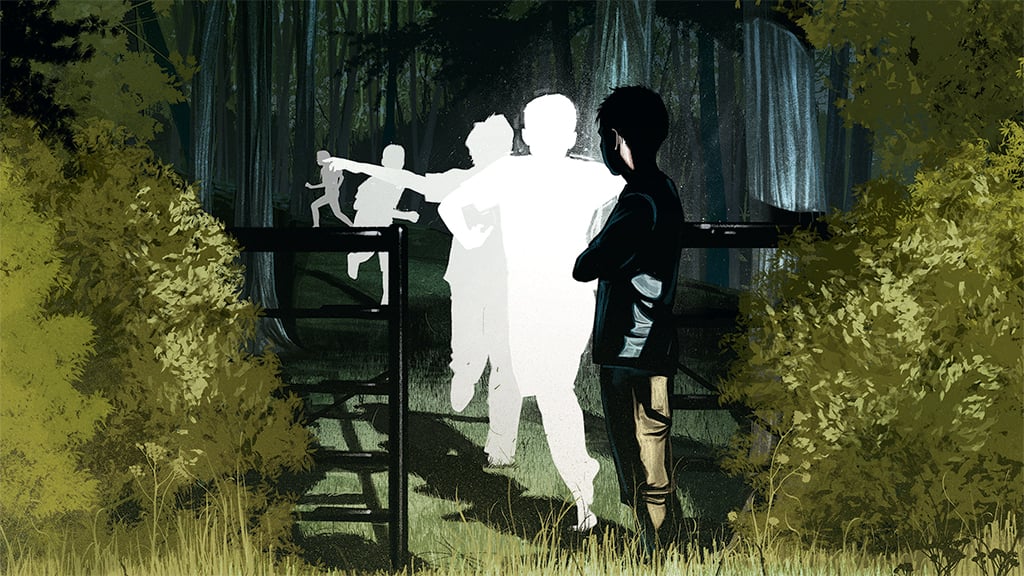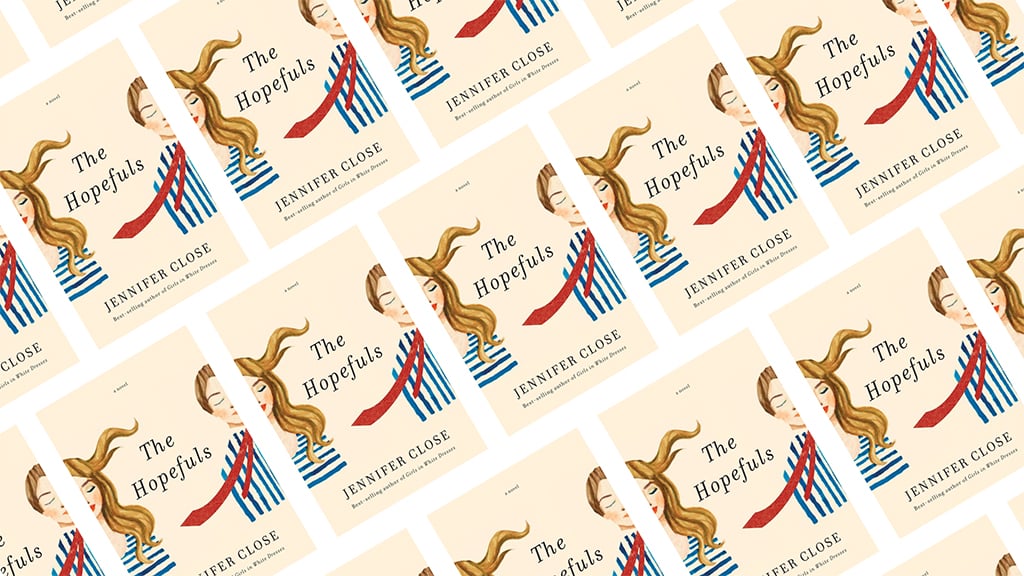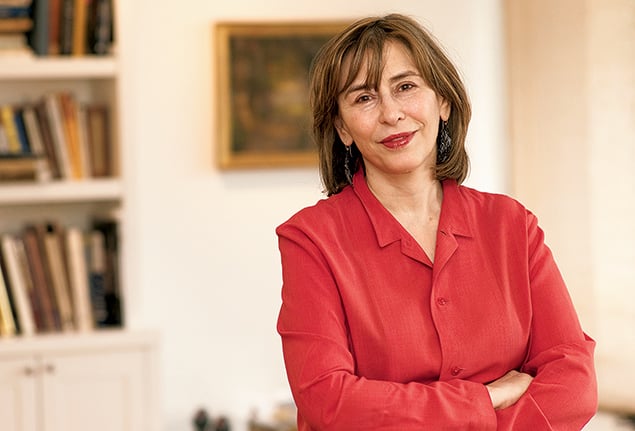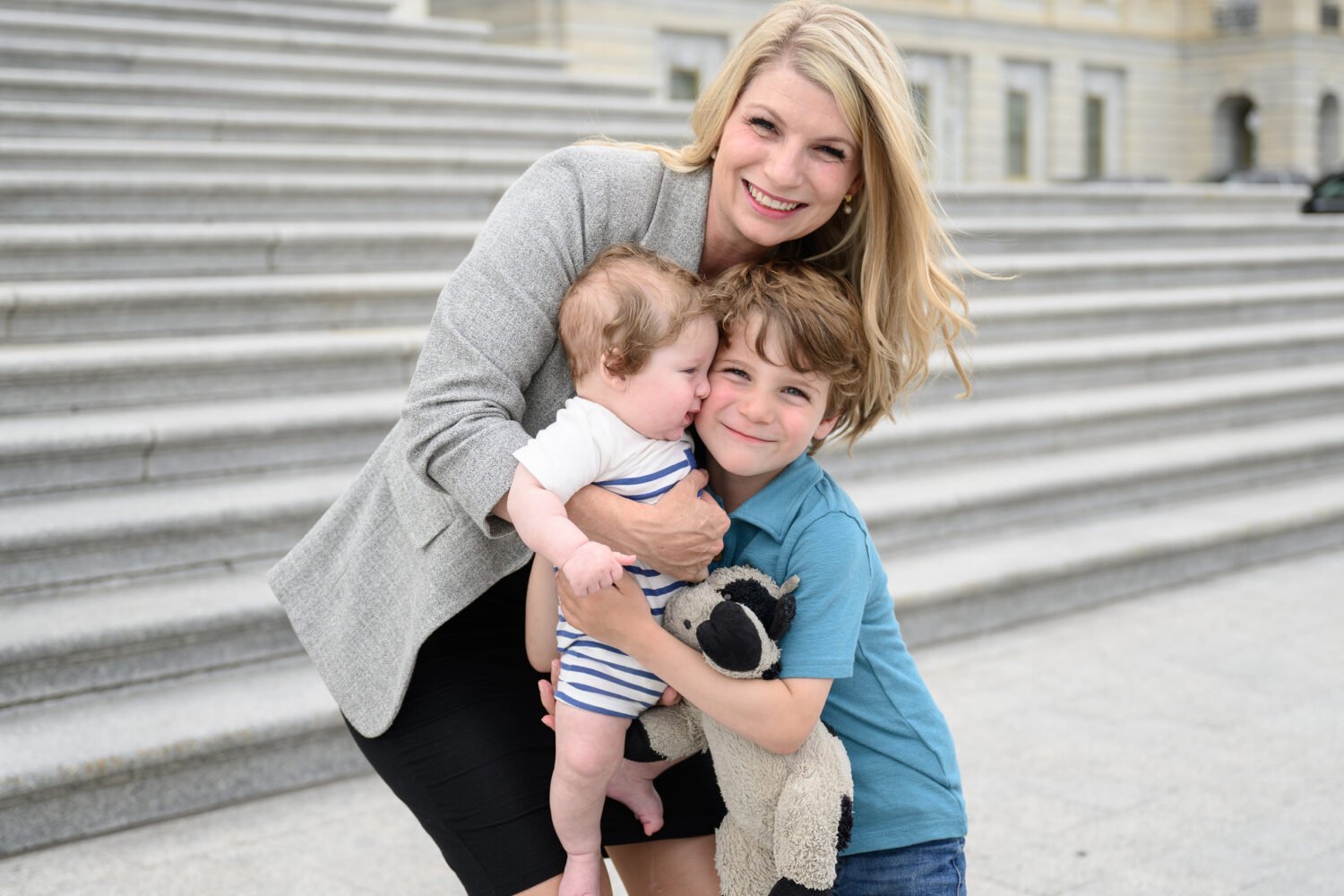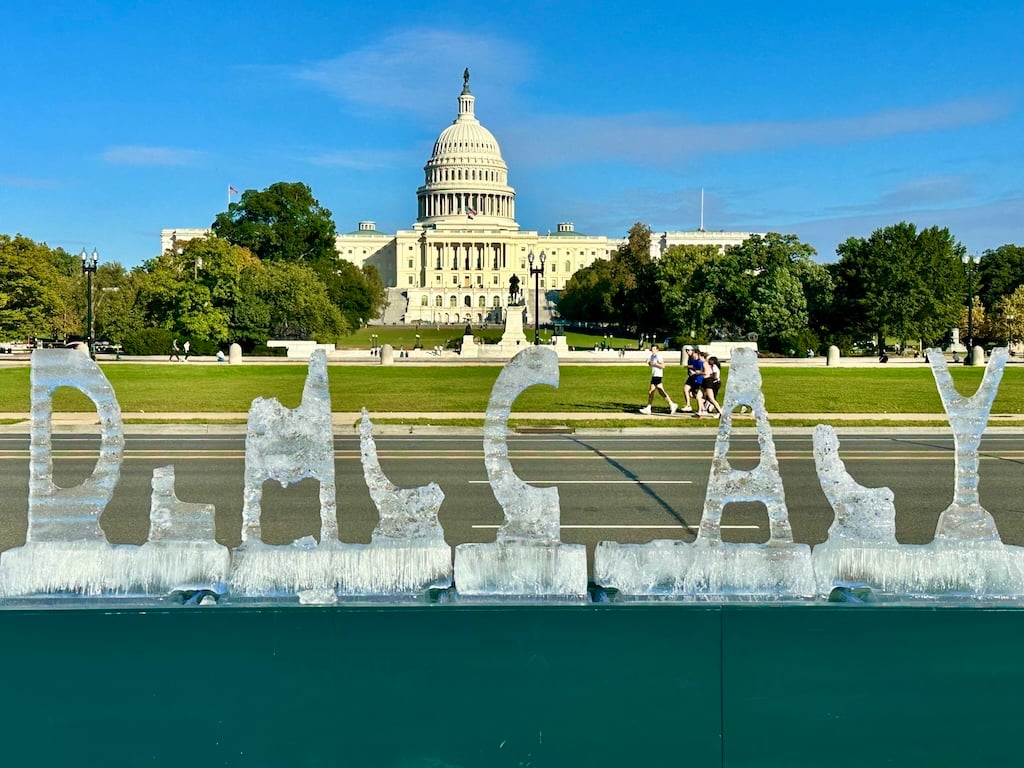Zainab Salbi insists she didn’t want to write a memoir. She wanted to focus on the plight of women in war zones, those who’ve been raped, kidnapped, or tortured. But coauthor Laurie Becklund—along with Salbi’s own reflections on the courage of war-ravaged women worldwide—changed her mind. Readers and history are the better for that.
As Salbi has come to understand, despite a privileged upbringing in 1970s and ’80s Baghdad, she too is a war victim. Though the war she describes is more internal than external, it tore apart her people, her family, and her psyche. Now living in the District as founder of Women for Women International—and honored in January as one of The Washingtonian’s 2006 Washingtonians of the Year—she has written a powerful, cathartic, and poetic portrait of a childhood in blossoming Iraq and an adolescence locked down by fear.
Eldest child of a pilot and a teacher, young Zainab took piano and swimming lessons and observed women out along the riverbank—some in abayas, some in miniskirts. “At our house,” she writes, “drinks were passed to men and women who mingled easily over the sounds of Western and Arabic music and plates of fresh pistachios, almonds, and pomegranate seeds” as her mother laughed with “unadulterated joy.” But Saddam Hussein took over the presidency when Salbi was nine, and life changed—a friend’s father executed, neighbors deported, air raids from the war against Iran, public “donations” of gold and jewels to Saddam.
The pressure magnified when Saddam tapped Salbi’s father, whom she calls Baba, to pilot Iraq’s equivalent of Air Force One. Trained to refer to the boss as Amo, or uncle, she says, “my brothers and I were grafted onto Amo’s life the following year the way Baba grafted new branches onto his citrus trees—we would grow, but there would always be a scar at the joint.” Saddam would drop in, with armed guards, for afternoons in which he was the only relaxed guest: “He was compelling, not just affable, charming rather than nice. . . . After a while, I couldn’t always tell the difference between the people my parents were and the people Amo was making them pretend to be.”
Salbi equates Iraq’s educated, worldly class with abused spouses, trapped by the time they realized a crisis. She learned to smile at palace parties, boxing away images too terrifying or painful to handle. “I ultimately came to understand,” she writes, “that he took from us with uncanny precision what was most intimate to us that it hurt.” Her emotions “got checked into storage like so much baggage I would have to pay to claim later.”
Before that came a misguided first love and a quick wedding to an older countryman in the United States. Along with the ascension of Saddam, this is a pivot point: “I creased my life down the middle like the spine of a book when you bend the pages back very hard. You could read the first half of the book of my life, then read the second half, and not know they were lived by the same person.” Only years later did her beloved mother lay open the horrifying secret of why she’d all but forced her daughter into marriage to a stranger—and approach the even deeper secret she never was able to divulge.
The depth of Salbi’s insights is due in large part to coauthor Laurie Becklund, who probed her subject, “perversely trying to revive her pain,” to craft an absorbing, chilling, and ultimately triumphant memoir. Salbi—now in her midthirties—has learned a lifetime of lessons: Status is not security, silence smothers the soul, and sometimes the bravest people are those who simply hang on to survive.
Author:
Zainab Salbi and Laurie Becklund
Publisher:
Gotham Books
Price:
$26
Rating:
3.5 Stars







